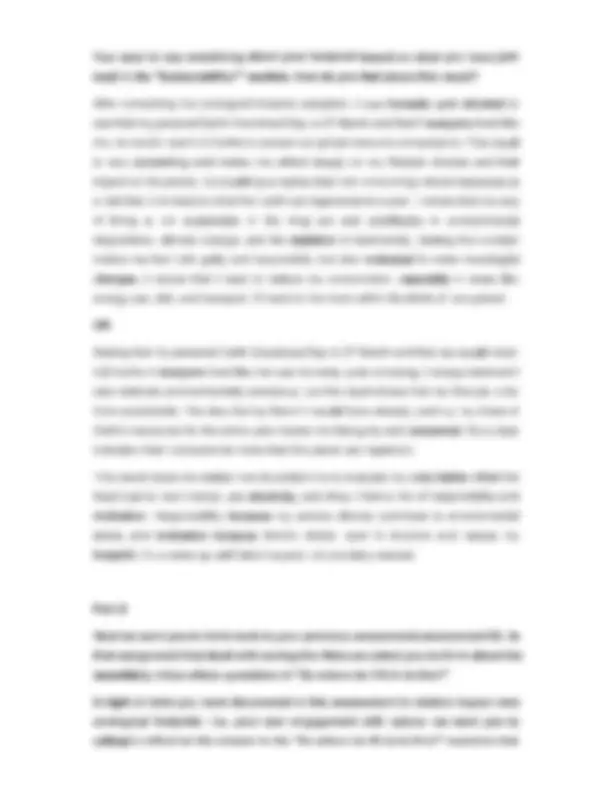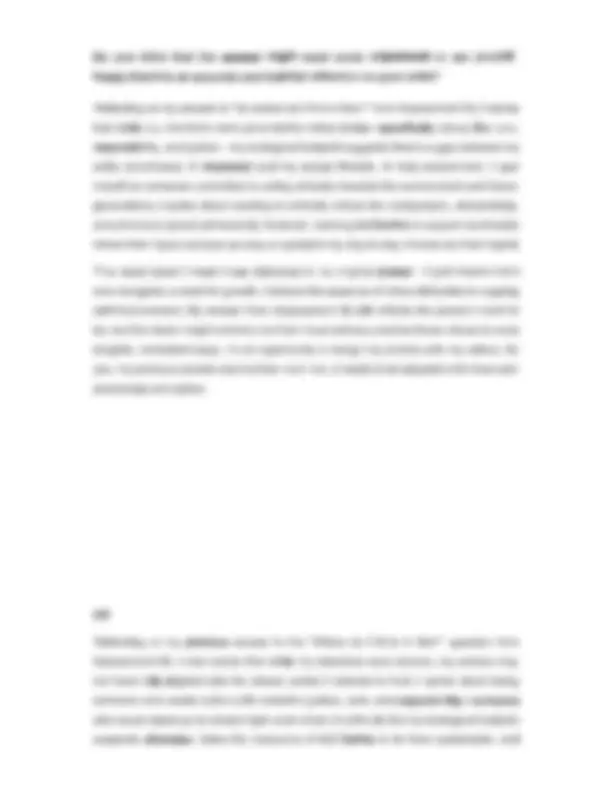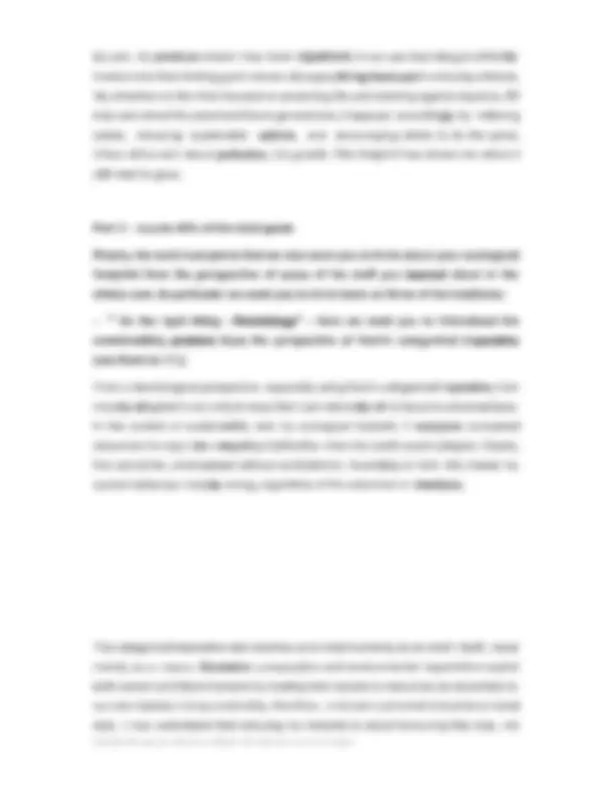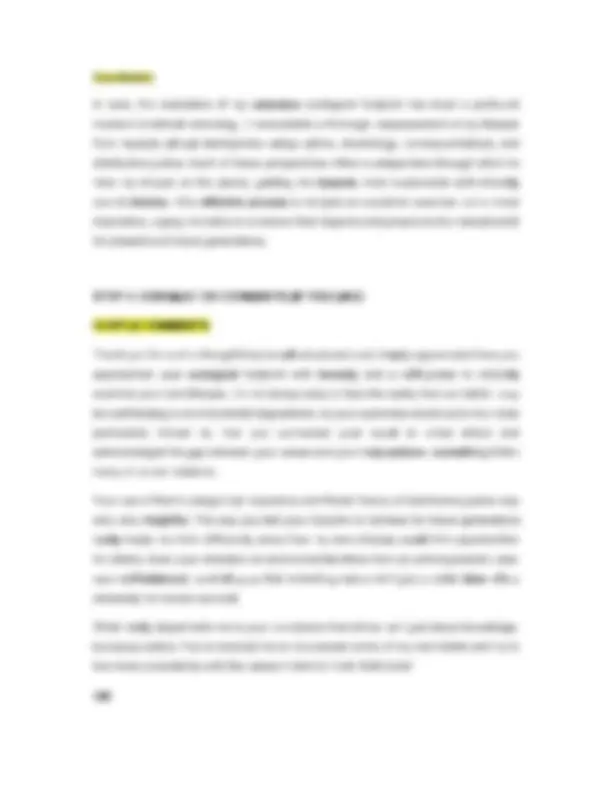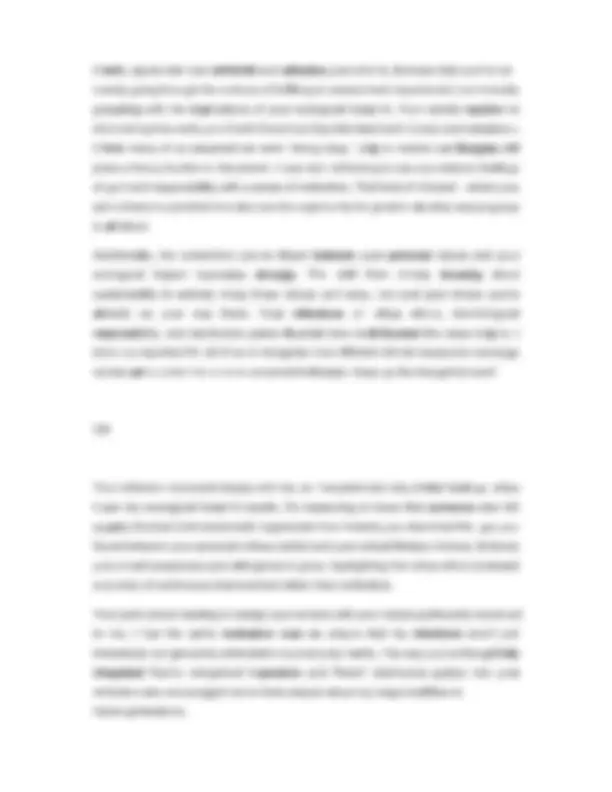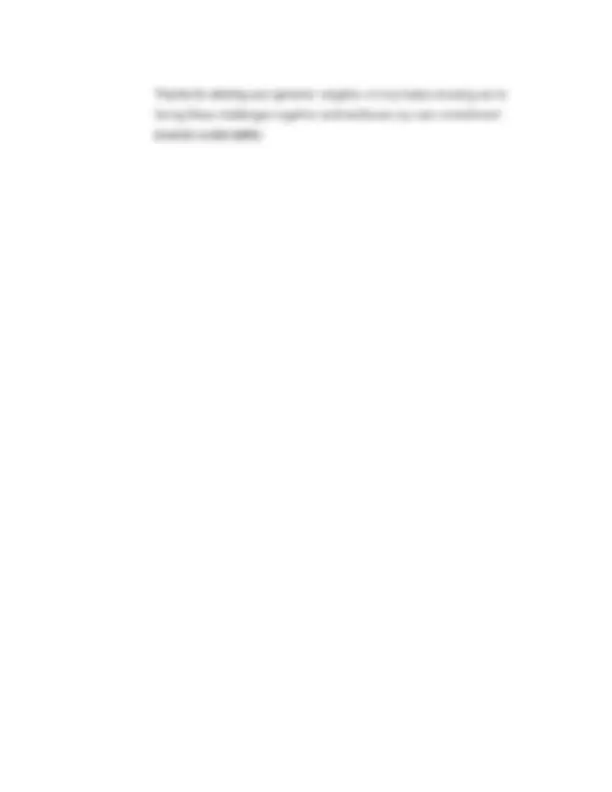Partial preview of the text
Download SUS1501 – Sustainability and Greed – Assignment 7 Answers | University of South Africa (UN and more Exams Nursing in PDF only on Docsity!
SUS1501 Assignment 7 Semester 1 2025 Unique number: 541324 Due Date: 22 April 2025 INSTRUCTIONS: Step 1: Set the scene To set the scene for this assessment we want you to first try and estimate your own ecological footprint. footprnscaiculator oeg/en/resutyAViummary RESULTS Your personal Earth Overshoot Day is: 27, Mar « If everyone lived like you, we would need 4.2 Earths « GEECE Why can’t | get my Footprint score, within the means of one planet? if Step 2: Write a comment about your footprint Right, now that you have an idea of what your ecological footprint is, you are going to do what you have done in most of the assessments up until now. You are going to post a comment (4 or 5 paragraphs this time) in the discussion forum below. Sounds simple enough right? Well yes and no. Your answer must contain all of the followina parts: Do you think that the answer might need some adjustment or are youstill happy that it is an accurate and truthful reflection on your aréte? Reflecting on my answer to “So where do| fit in in this?” from Assessment 06, | realise that while my intentions were grounded in virtue ethics—specifically values like care, responsibility, and justice—my ecological footprint suggests there’s a gap between my aréte (excellence of character) and my actual lifestyle. In that assessment, | saw myself as someone committed to acting ethically towards the environment and future generations. | spoke about wanting to embody virtues like compassion, stewardship, and phronesis (practical wisdom). However, needing 4.2 Earths to support my lifestyle shows that | have not been as wise or careful in my day-to-day choices as | had hoped. This result doesn’t mean | was dishonest in my original answer—t just means that | now recognise a need for growth. | believe the essence of virtue ethics lies in ongoing self-improvement. My answer from Assessment 06 still reflects the person | want to be, but this latest insight reminds me that | must actively practice those virtues in more tangible, consistent ways. It’s an opportunity to realign my actions with my values. So yes, my previous answer was truthful—but now, it needs to be adjusted with more self- awareness and action. OR Reflecting on my previous answer to the “Where do | fit in in this?” question from Assessment 06, | now realise that while my intentions were sincere, my actions may not have fully aligned with the virtues (aréte) | claimed to hold. | spoke about being someone who wants to live a life rooted in justice, care, and responsibility—someone who would stand up for whatis right, even when it’s difficult. But my ecological footprint suagests otherwise. Using the resources of 4.2 Earths is far from sustainable, and So yes, my previous answer may need adjustment. | now see that fitting in ethically means more than holding good values—it means living them out in everyday choices. My reflection on the rhino focused on protecting life and standing against injustice. If | truly care about the planet and future generations, | must act accordingly by reducing waste, choosing sustainable options, and encouraging others to do the same. Virtue ethics isn’t about perfection, but growth. This footprint has shown me where | still need to grow. Part C - counts 60% of the total grade Finally, the technical part is that we also want you to think about your ecological footprint from the perspective of some of the stuff you learned about in the ethics core. In particular we want you to think back on three of the traditions: " Do the right thing - Deontology" - Here we want you to thinkabout the sustainability problem from the perspective of Kant's categorical imperative (see Kant do it! ); From a deontological perspective, especially using Kant’s categorical imperative, | am morally obligated to act only in ways that | can rationally will to become universal laws. In the context of sustainability and my ecological footprint, if everyone consumed resources the way | do—requiring 4.2 Earths—then the world would collapse. Clearly, this cannot be universalised without contradiction. According to Kant, this makes my current behaviour morally wrong, regardless of the outcomes or intentions. The categorical imperative also teaches us to treat humanity as an endin itself, never merely as a means. Excessive consumption and environmental degradation exploit both current and future humans by treating their access to resources as secondary to our own desires. Living sustainably, therefore, is not just a personal choice but a moral duty. | now understand that reducing my footprint is about honouring this duty, not Rimahs hannunn Wa banafinial hid bannuan it in cinht understood the theory in question. If we don't see this you will not pass this assessment. In sum, the realization of my extensive ecological footprint has been a profound moment of ethical reckoning. It necessitates a thorough reassessment of my lifestyle from multiple ethical standpoints—virtue ethics, deontology, consequentialism, and distributive justice. Each of these perspectives offers a unique lens through which to view my impact on the planet, guiding me towards more sustainable and ethically sound choices. This reflective process is not just an academic exercise but a moral imperative, urging me to live in a manner that respects and preserves the natural world for present and future generations. STEP 3: COMMENT ON COMMENTS (IF YOU LIKE) Thank you for such a thoughtful and well-structured post. | really appreciated how you approached your ecological footprint with honesty and a willingness to critically examine your own lifestyle. It’s not always easy to face the reality that our habits may be contributing to environmental degradation, so your openness stood out to me. | was particularly moved by how you connected your result to virtue ethics and acknowledged the gap between your values and your daily actions—something | think many of us can relate to. Your use of Kant’s categorical imperative and Rawls’ theory of distributive justice was also very insightful. The way you tied your footprint to fairness for future generations really made me think differently about how my own choices could limit opportunities for others. Even your reflection on environmental ethics from an anthropocentric view was well-balanced, reminding us that protecting nature isn’t just a noble idea—it’s a necessity for human survival. What really stayed with me is your conclusion that ethics isn’t just about knowledge, but about action. You've inspired me to re-evaluate some of my own habits and try to live more consistently with the values | claim to hold. Well done! OR Thanks for sharing your genuine insights—it truly helps knowing we’re facing these challenges together and reinforces my own commitment towards sustainability. 
